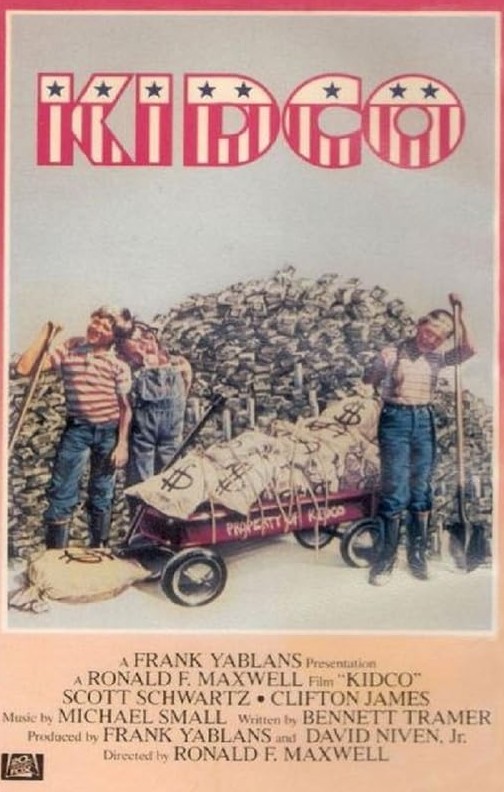
Neptune in Capricorn
Meanings & Impact
In astrology, the outer planets— Uranus, Neptune, & Pluto —are termed "generational planets" due to their slow progression through each sign.
Because these outer planets move so slowly, (taking many years to move through a sign) they not only deeply influence those born under the Sign, they also mold societal trends and norms over extended periods for those who have lived under the transit (not born under Neptune in Capricorn, in this case).
Neptune is the planet that symbolizes our hopes, fantasies and ideals, and the often-blurred boundary between what's real and imagined. Neptune dissolves borders and despises harsh realities. Those with a Neptune Dominant are often described as dreamy, kind, intuitive, and have a childlike faith where they can find the bright light in the darkest of times.
Capricorn, on the other hand, is the embodiment of ambition, discipline, and structure. Capricorn’s motto is “I Use” and it seeks to build wealth and authority.
As Neptune meandered through Capricorn between 1984 and 1998, the dreamlike nature of Neptune found its grounding in Capricorn's pragmatic and enterprising world.
Ideals and fantasies (Neptune) turned toward achievement and $ materialism (Capricorn).
Neptune in Capricorn
1984-1998
Wishing for Riches
When a slow moving planet that affects an entire generation passes through the sign of Capricorn, it influences not just those born during that period but also the broader collective desire to make a lasting impact and achieve measurable material success in the world.

Just as Neptune was entering Capricorn, the term "Yuppie" came into being. "Yuppie" is an acronym for "Young Urban Professional," and it was predominantly used in the 1980s to describe a socio-economic demographic of young, well-educated professionals who worked in white-collar jobs and lived in urban areas.
Yuppies were known for their upward mobility and were closely associated with the 1980s ethos of material success and conspicuous consumption. The term often carried connotations of affluence, a focus on career advancement, and a lavish lifestyle that included a taste for luxury goods, high-end fashion, and gourmet food and drink.

"Kidco" (1984) IMDB Movie Trailer
Just as Neptune entered Capricorn in 1984, the 1984 film “Kidco” spotlighted the spirit of youthful entrepreneurship, telling the real-life story of a 13-year-old boy starting a multi-million-dollar business. This foreshadowed a wave of ambitious, business-focused youth that emerged as Neptune entered Capricorn.

"Wallstreet" 1987 IMBD Movie Clip
The 1987 film "Wall Street" epitomized the allure and ethical dilemmas of the rapid riches dreamed of during this era.
The movie inspired dreams of boundless wealth and posed questions about ambition and ethics that defined the cultural landscape during this time. It follows ambitious young stockbroker Bud Fox (Charlie Sheen), who becomes involved with greedy corporate raider Gordon Gekko (Michael Douglas). Gekko manipulates stocks for profit and embodies the mantra "greed is good", embodying the dark side of Neptune in Capricorn.
Brands merged with Lifestyles & Identities
Brand identity resonated on a Neptunian emotional level. It is during this time that popular Brands became linked to lifestyles, values and ideals rather than just products.
Air Jordans: Emerging under the Nike brand, Air Jordans, introduced in 1984, quickly became more than just a line of basketball shoes. They represented excellence, success, and aspiration, largely influenced by the iconic status of Michael Jordan. Owning a pair became a fashion statement, blending athletic prowess with urban style.
Apple: Known for its innovation and sleek designs, Apple went beyond just technology to symbolize forward-thinking creativity. With the Macintosh's launch in 1984 and subsequent products, Apple consistently conveyed a sense of individualism, disruption, and the idea of thinking differently.
Nike: With its "Just Do It" campaign, Nike did more than sell shoes. They promoted a mindset and way of life that was about overcoming challenges, determination, and achieving greatness. The brand became synonymous with athleticism, motivation, and pushing one's limits.
Starbucks: Launching its expansion in the 1980s and '90s, Starbucks transformed the coffee drinking experience from a mere beverage routine to a lifestyle choice. It signified culture, community, and a third-place between work and home.
MTV: As a revolutionary music channel, MTV became more than just a broadcaster. They were the flag-bearers of a youth revolution, representing a shift in cultural dynamics, music tastes, and even political opinions.
Virgin: Richard Branson's Virgin group, especially Virgin Atlantic and Virgin Records, became known for challenging the status quo and bringing a fresh, rebellious perspective to industries that were previously considered stale or monopolized.
Harley-Davidson: While the brand has older roots, the '80s and '90s solidified Harley-Davidson's image as the embodiment of freedom, rebellion, and the American Dream. Owning a Harley was not just about having a bike, but about being part of a larger community with shared values.
Calvin Klein: In the world of fashion, Calvin Klein emerged with powerful ad campaigns that were edgy, provocative, and often minimalist. CK became not just clothing or fragrances, but an entire mood and aesthetic.
Ben & Jerry's: The ice cream brand stood out not just for its unique and delightful flavors but also its commitment to social causes. From supporting local communities to taking environmental initiatives, Ben & Jerry's became a brand with a heart.
These brands utilized a mix of savvy marketing, product innovation, and cultural understanding to resonate deeply with consumers on an almost emotional level. The emphasis shifted from just "what" the product is to "why" it matters, anchoring their products in a larger narrative or ethos.

Defining Traits of Those Born During this Transit:
Visionary Pragmatism: Those born during this time have the unique ability to envision their dreams in intricate detail. Their aspirations are not just vague desires; they're meticulously crafted plans. This has made them strategic visionaries, capable of long-term planning while focusing on ultimate goals.
Purpose-driven Ambition: For many in this cohort, success isn't solely about societal benchmarks, like job titles or income levels. It's also about finding deeper meaning and fulfillment in their pursuits. Their drive to climb societal ladders is tied to a greater purpose or impact.
Materialistic Spirituality: They look for spiritual significance within the material world. Many view their entrepreneurial ventures not merely as business opportunities but as platforms to make a societal impact or to e Economic Landscape: This era saw significant economic growth, temporarily interrupted by events like 1987's Black Monday stock market crash. Silicon Valley and tech startups epitomized innovation driving prosperity, blending Neptune's imagination with Capricornian strategy.
*Your natal chart placement of Neptune and its aspects can further shine light on the motivations behind your dreams, illusions, delusions, escapism, and spirituality.

Cosmodynes
*Look at your Cosmodyne scores for your Neptune's Power and Harmony/Discord for more insight. While everyone has good and bad days, your Cosmodynes reveal where you lean toward on average.
(As we age, we learn to deal with all of our placements, and hopefully, we evolve into more harmonious beings than our Natal charts suggest.)
Transits to your Neptune, especially from the outer planets, greatly affect its expression as well.

A Harmonious Neptune in Capricorn
- You possess a unique ability to blend your dreams with reality, often manifesting your visions in tangible ways.
- Your spiritual pursuits are grounded, seeking practical applications and structures for your beliefs.
- You often see the bigger picture, combining traditional values with intuitive insights to create lasting foundations.
- Your sense of responsibility extends to your spiritual or imaginative endeavors, ensuring you approach them with dedication and discipline.
- You have a knack for turning abstract concepts into actionable plans, bridging the gap between the ethereal and the earthly.

A Discordant Neptune in Capricorn
- There's a risk of becoming too rigid in your spiritual beliefs, potentially stifling growth. It's essential to remain open to evolving perspectives.
- You might sometimes struggle with over-materializing your dreams, losing sight of the deeper meaning behind them. Periodic reflection can help realign your intentions.
- Your commitment to structure can sometimes make it difficult to flow with the unpredictable nature of intuition. Learn to find a balance between control and surrender.
- Avoid becoming overly pragmatic to the point of dismissing the mystical or unexplained. The spiritual realm often operates beyond the confines of logic.
- It's crucial to understand that while tangible results are gratifying, the journey and growth that occurs in pursuit of dreams are equally valuable.
*Your natal chart placement of Neptune and its aspects can further shine light on the motivations behind your dreams, illusions, delusions, escapism, and spirituality.
Sign up today!
See how we apply Cosmodynes to your
Free Personal and Synastry Reports.
|

Ben Baker, CEO
About the Author
Ben has practiced Astrology for over 35 years and is a certified Cognitive Behavioral Therapist (CBT) Practitioner. Ben holds 11 patents for the core functions that all dating sites now use today. See Ben's Bio for more info.
|



















Comments